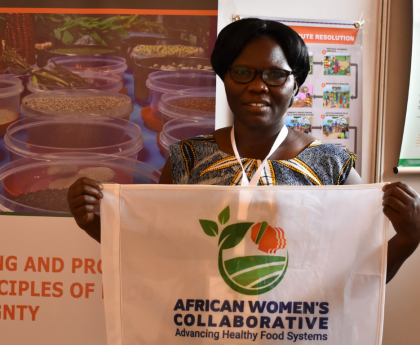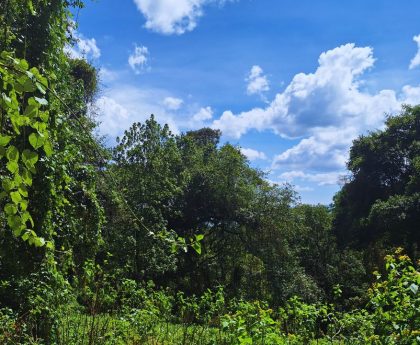By Chemtai Kirui
Nairobi, Kenya March 24, 2023— The Agroecology Conference came to a successful conclusion, Thursday, after three days of informative and engaging activities that brought together experts, stakeholders, and farmers from all over the world.
The conference, held at the prestigious Safari Park Hotel in Nairobi, aimed to promote sustainable agricultural practices, particularly agroecology. Over the course of three days, participants enjoyed a series of presentations, workshops, and discussions, covering a wide range of topics related to agroecology.
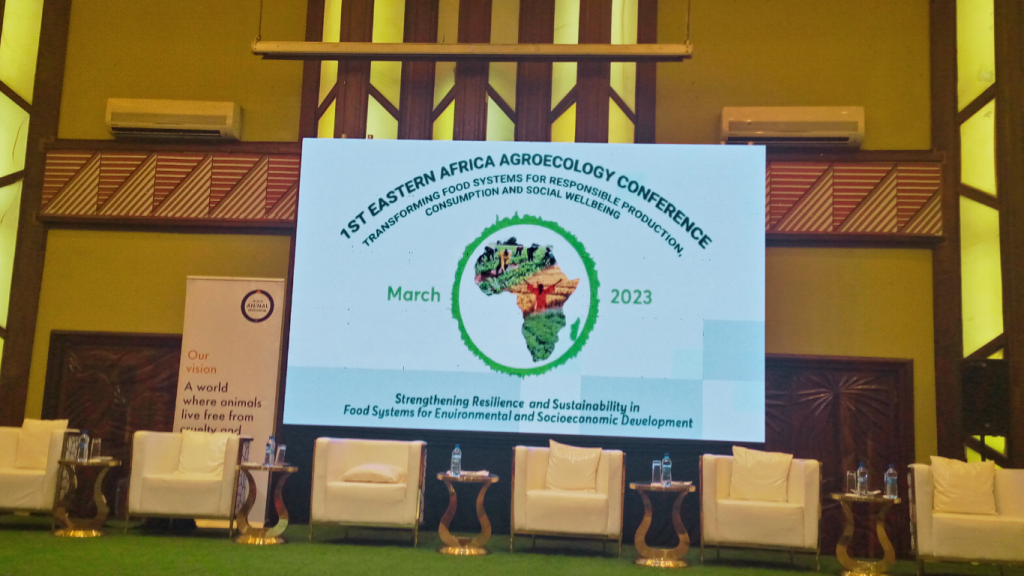
The keynote speakers included renowned experts in the field, such as Dr. Emma Siliprandi (FAO), Dr. Hans Harren (Biovision Foundation), Dr. Million Belay (AFSA), and Ms. Shamika Mone, ( INOFO) who gave insightful talks on the importance of agroecology in achieving food security and promoting sustainable development.
The conference also featured several panel discussions that focused on specific issues, including Indigenous food systems, Women and Youth in Agroecology, Ecological Organic Trade, Markets and Economy, financing agroecological transformation, and Organic Lifestyle Influencer approach. Participants had the opportunity to engage in lively debates and exchange ideas with their peers.
One of the conference highlights was a Youth leader, who spoke passionately about making agroecology attractive to youth. He urged the guests to clap harder and louder with the energy of African youth. Amidst laughter and ear-bursting applause, Richard Mugisha, the Regional coordinator of Youth Track, spoke on.
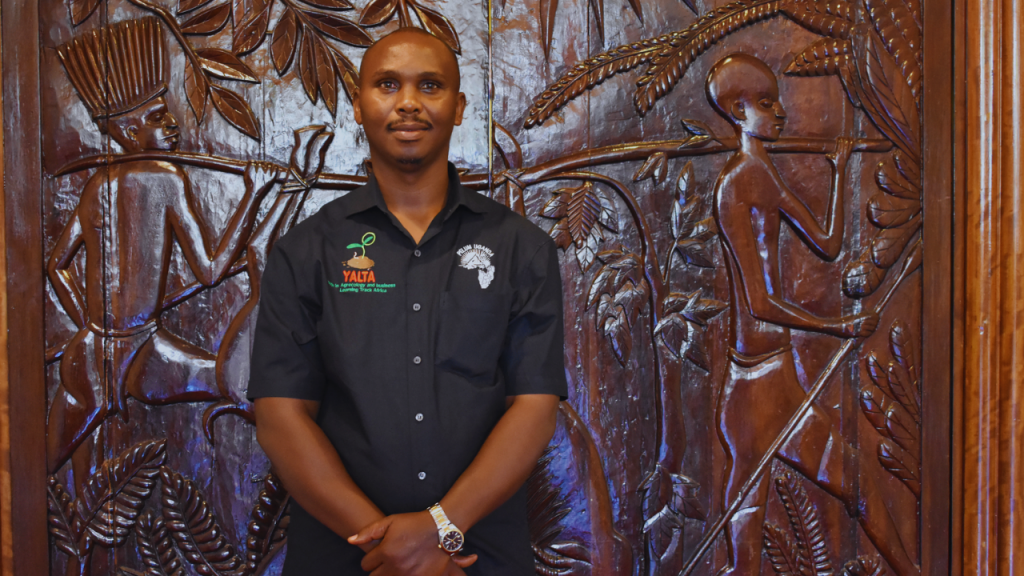
“Youth is a valuable asset in Africa,” Mugisha said. “Having young people involved in agroecology is crucial, but they are not attracted to agroecology because of market attitudes, erosion of culture and unfavorable policy.”
To make agroecology attractive to youths, Mugisha, who oversees Youth track efforts in Kenya, Rwanda and Ethiopia, proposed innovative financing models for small and medium enterprises, promoting family farming, empowering youth to have acquire key resources, with access to information on agroecology, communication, and technology.
“We need to organize agroecology learning exposures/field visits, offer mentorship and coaching opportunities, integrate agroecology in research systems and change curricula of learning institutions and education systems, in order to best attract and motivate the Youths to Agriculture.”
Another Youth leader who took center stage was Milka Chepkorir, the coordinator of Community Land Action Now. Chepkorir highlighted the importance of Indigenous food systems and pastoral-based practices in the agroecology discourse.
She emphasized the need to respect and understand the indigenous community, and to tap into their existing practices that are already working within their community. She also drew attention to the discriminatory policies against the indigenous community, which dismiss their way of living.
“We should focus on getting the indigenous knowledge from the communities, rather than taking foreign technologies to them,” said Chepkorir, who comes from Sengwer Indigenous community found in Embobut Forest, which is their ancestral land.
The potential of Africa’s youth population was a major highlight of the three day conference affair. Among the participants showcasing their work at the conference is Samuel Kiiru, working for Slow Food Kenya, an agroecological business enterprise, promoting traditional farming methods, to preserve culture and tradition.
In his interview, Kiiru said that — the young are shunning traditional food crops in favor of quick produce that has been grown using boosters and fertilizers.
“It’s all about money,” he says. “No one talks about how I’m going to eat first, then sell.” This shift in mindset has led to the slow death of traditional farming methods, but Slow Food Kenya is trying to revive it.
Kiiru believes that the few farmers who still practice agroecology and organic farming are the ones who are preserving Kenya’s traditional values of farming. He adds that the older generation, ‘the grandparents’, have played a significant role in preserving traditional seeds, as they knew how to select, replant, and conserve them.
“Despite our grandparents’ effort to preserve the traditional seeds like the ‘Githingo‘ (Kikuyu Maize), people no longer have the knowledge or inclination to conserve these seeds, and many have become slaves to agrochemical shops and multinationals.” he says, adding that, “Slow Food Kenya aims to bring back the traditions, names, culture, and nutrition that come with traditional farming, which I believe has a lineage of advantages and solutions to many problems.”

Dr. Frank Eyhorn CEO, Biovison Foundation, suggested that donors should shift their funding to support agroecology, and the investment in agroecological business is necessary for better returns. “Diversified ecological practices will have better returns,” he says. “By investing in agroecological business, one can ensure the health of the environment, people, and society. Small and medium-sized enterprises (SMEs) make up a significant percentage in sub-Saharan Africa, adding substantial market value. “
Dr. Eyhorn stresses that financing agroecology is not only necessary for environmental sustainability but also for socio-economic development in Africa.
“The focus should be on holistic investment that considers the environment, health, people, and society.” he said, adding that there needs to be holistic business support, a collaborative set-up, and agroecology criteria for an agroecology accelerator to work effectively.
During the three-day agroecology conference, emphasized the need for collaborative research and partnership, to promote agroecology, and for sustained conversation and engagement. They noted that although agroecology practices work, evidence of their effectiveness in Africa is fragmented.
“Resource mobilization is required for the practice to work, and financial and facilitation support is needed for lobbying and advocacy. ” agroecology stakeholders say.
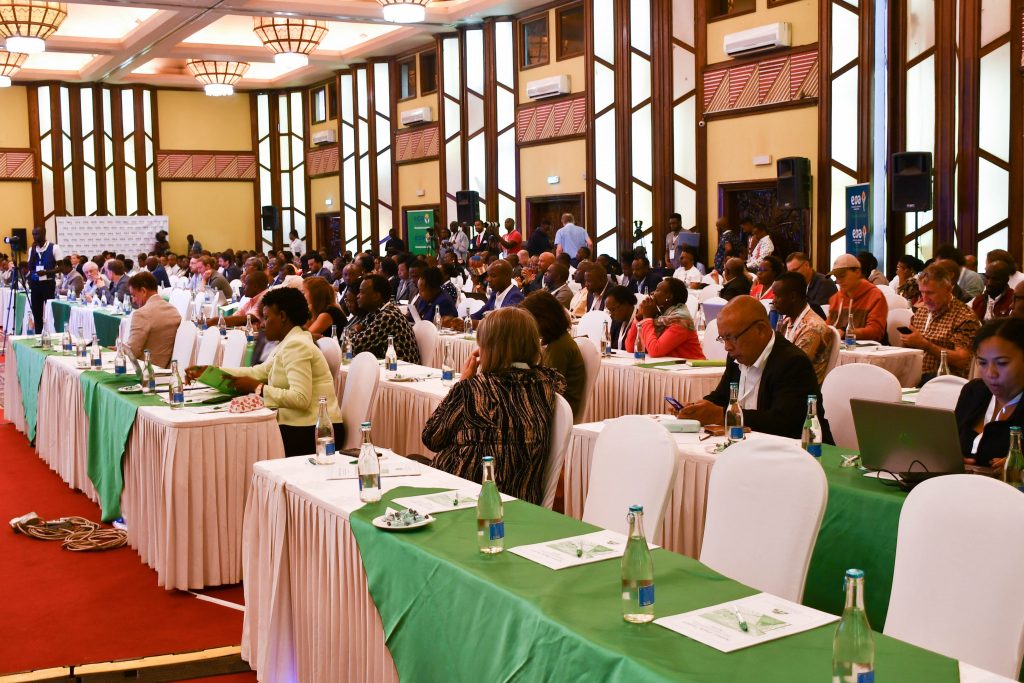
“Farmers’ movements are essential to promoting agroecology agriculture. We need to support agroecology agriculture by providing incentives and policy support, as well as to promote knowledge sharing and education,” said Hans Herren, the President of the Millennium Institute.
Bert-Jan Ottens on the other hand, the Owner and senior Adviser of ProFound, stated that financial investment is necessary for regenerative agriculture to succeed, and that organic trade has not evolved enough to support this.
“The availability and affordability of organic products in Africa is lacking, which results in less demand domestically compared to internationally.” Ottens said, adding that local market support should be promoted to reduce food waste and support local farmers.
The experts also highlighted the Importance of consumers recognition and involvement in developing Agroecological practices.
The conference featured farmers market, where local farmers showcased their agroecological produce and shared their experiences with the participants. Attendees also had the opportunity to visit nearby farms to learn firsthand about sustainable agricultural practices.

Speaking at the closing ceremony, the organizer of the conference, Dr. David Amudavi, expressed his satisfaction with the outcome of the event. He emphasized the importance of agroecology in addressing the challenges facing agriculture today and called on participants to continue the conversation and implement the knowledge they had acquired in their respective communities.
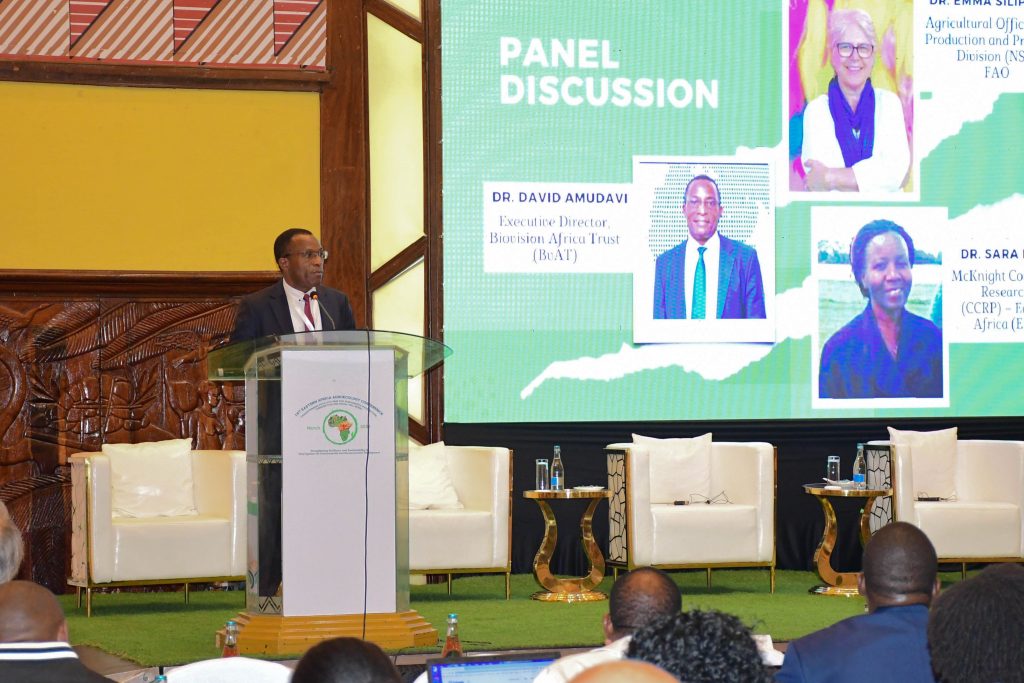
The Agroecology conference provided a platform for experts to share their knowledge and experiences on a range of topics related to agroecology. The discussions and ideas generated at the conference are crucial in identifying key challenges facing sustainable agriculture and developing practical solutions to help with food systems transformation agenda, In Eastern Africa.
The event was Officially closed by Honorable Fred Bwino Kyakuloga, the minister of state for Agriculture in Uganda.
“This report was developed with the help of ESAFF Uganda through the Agroecology School for Journalists and Communicators.”




